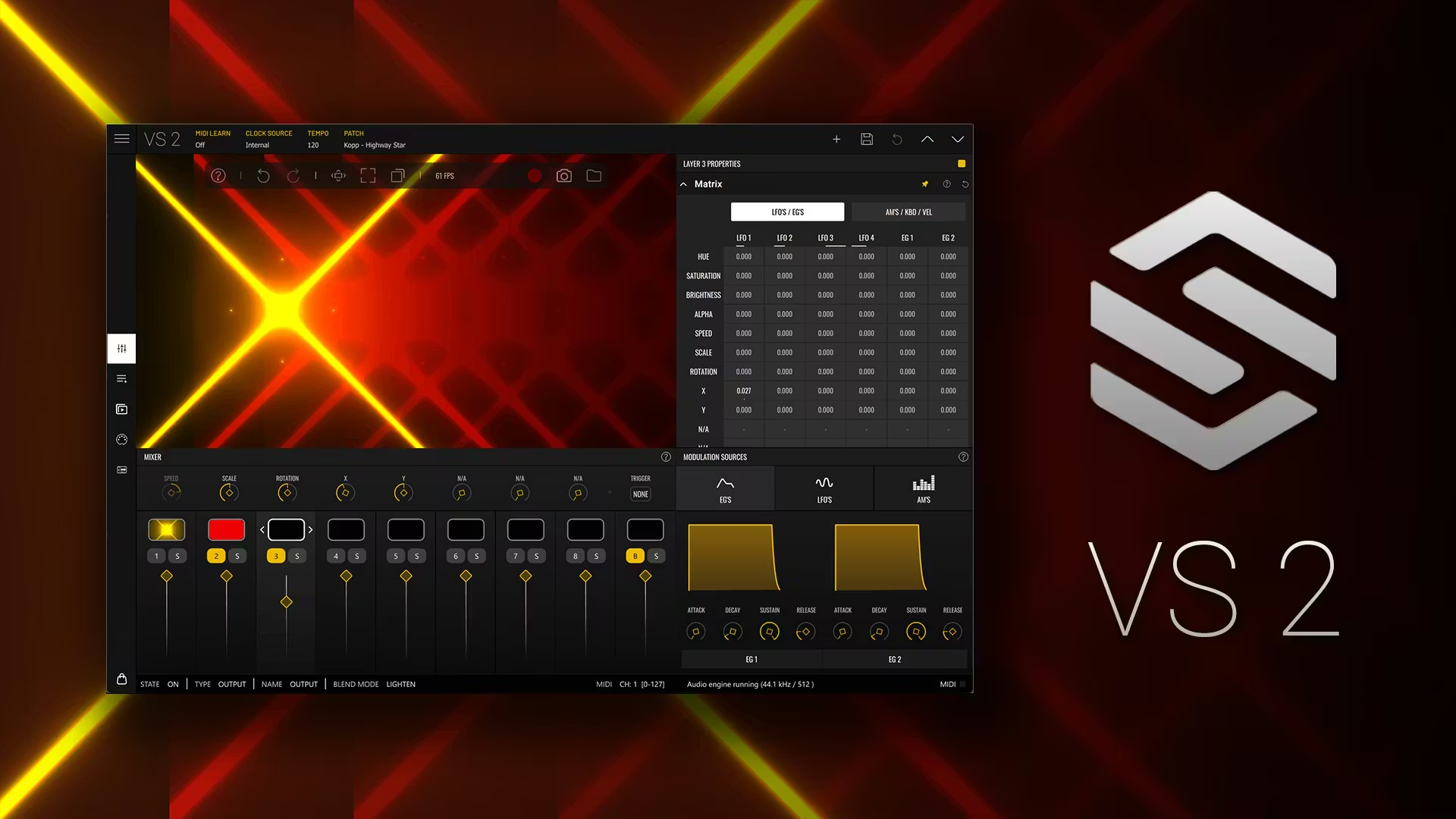This collection includes Dunumba, Kenkeni and Sangban drums (all from the Ewe tribe in Ghana), Gungon (from the Dagomba tribe in Northern Ghana) and Macana Surdo (from Brazil). They are all cylindrical double-headed drums, although otherwise they have completely different designs and create a variety of sounds. Typically they are used for basic rhythms. Up to 4 speed levels, with open and closed (muffled) impacts.
Atsia Bells:
These bells are an integral component of African percussion ensembles and provide important structure to the rhythms. Among the instruments are the iron castenet, the kenken, the toke, and the all-important gankogui bells. Gankogui is the basis of the entire ensemble. His voice provides the metronomic backdrop upon which the core music of the Anlo-Ewe is built. Includes 5 individual Gankoki bells. Up to 4 speeds and open and muted strikes provide a wide variety of tones.
Atsia Floor DrumsHand Beat:
This set of drums includes the djembe (one of the most popular hand drums worldwide in drum circles, rituals and gatherings), apentema and three different kpanlogo drums – conga-shaped drums covered in antelope skin. Both strong and weak hand strikes were analyzed. Open and muted strikes, open and muted slaps with four speeds allow you to work with a wide range of percussive sounds.
Atsia Floor Drums Hand & Stick Hit:
This set of drums played with both hands and sticks includes Atsimevu, Boba and Sogo. Atsimevu is the lead drummer and the most important player in the Ewe ensemble. The atsimevu’s task is to lead the rest of the ensemble members during the performance. The performer uses various beats to create a rhythmic language in which he communicates with the rest of the ensemble. Sogo is the second most important drum in the ensemble after the atsimevu and the largest of the auxiliary drums. The Boba is a barrel-shaped bass drum that creates a thunderous, rumbling bass sound for an ensemble. Up to 4 speeds, a wide selection of open and muted picks, slaps, fills and double strikes give you a wide percussion vocabulary with which to create your own music.
Atsia Floor DrumsStick Hit:
Floor drums play both a leading and supporting role in this set of instruments. They are all played with sticks. Instruments include: Kaganu, Kidi, Kloboto, Kpegisu and Totoji. Kpegisu is one of the oldest oral traditions in West Africa, characterized by its deep expressiveness and use of allegories and metaphors. In the past, the Kpegisu dance was the dance of those leaving for war, but now it is performed on special occasions. The Kpegisu drum is named after this dance. Both strong and weak hand strikes were selected. Open and muted kicks are included, as well as a side stick, with four speeds.
Atsia frame drums:
Gome and Tamalin are two unique frame drums of the Ashanti and Ga peoples of Ghana. Gome resembles a small table with a rectangular or square leather top. With the drummer lying on his side on the ground, he sits on it and plays with his hands and the heels of his feet, which are pressed against the skin to change the tone. Tamalin is square or rectangular in shape and is held in the middle of a cross-shaped frame with one hand and struck with the other hand. The wedge tuning system and goatskin head provide high, even tone. Up to 4 speeds of center and edge strikes, mutes and slaps.
Atsia Shakers and Clicks:
Shakers add color and texture to a percussion ensemble. These shakers originate from Ghana and Brazil and include Afoxe, 4 different Axatse, 2 different Caxixi, Frogs Eggs, Ganza, Maracas and Shekere. The kit also includes finger clicks. Multiple speeds, single, double pushes and taps.
Atsia Talking Drums:
Shakers add color and texture to a drum ensemble. These shakers originate from Ghana and Brazil and include Afoxe, 4 different Axatse, 2 different Caxixi, Frogs Eggs, Ganza, Maracas and Shekere. The kit also includes finger clicks. Multiple speeds, single, double pushes and taps.
1) Install the plugin.
2) Copy the “Singles Atsia Percussion” folder to any location convenient for you and run the “Locate_Library_Here” command to integrate the library with the plugin.




